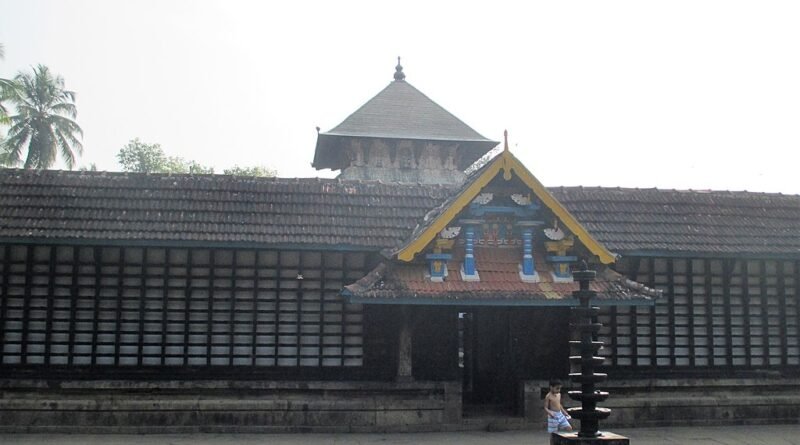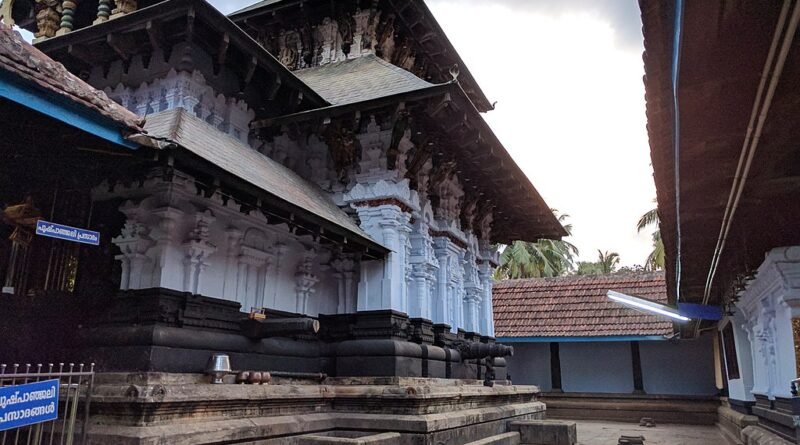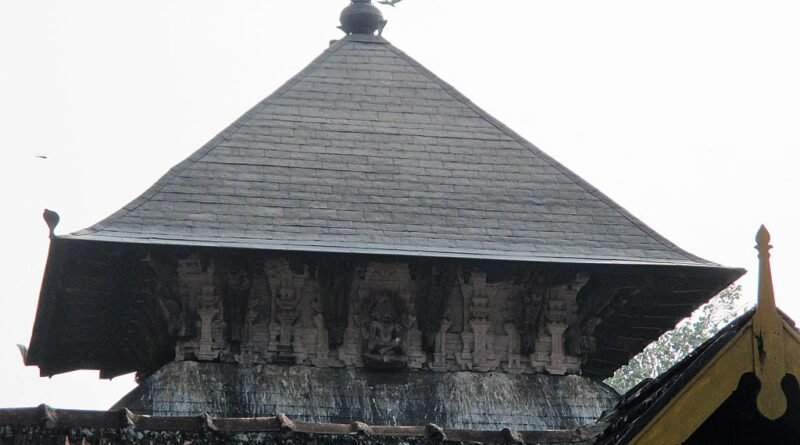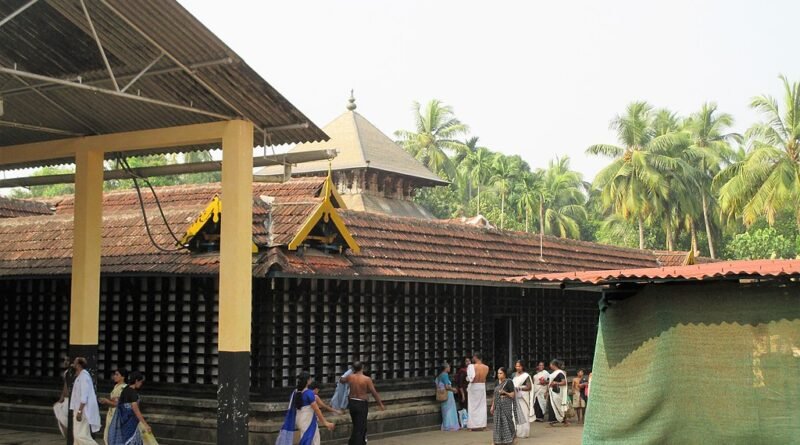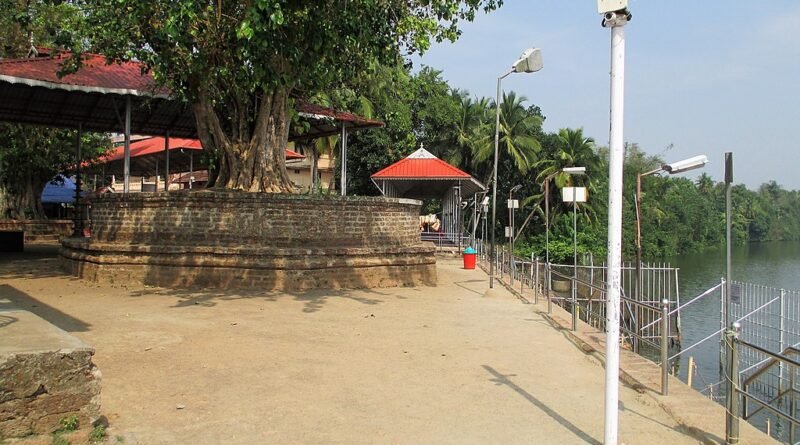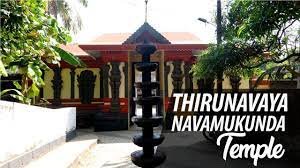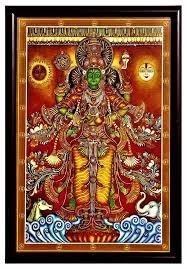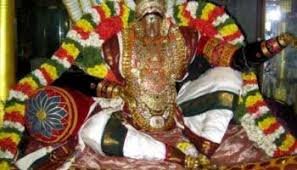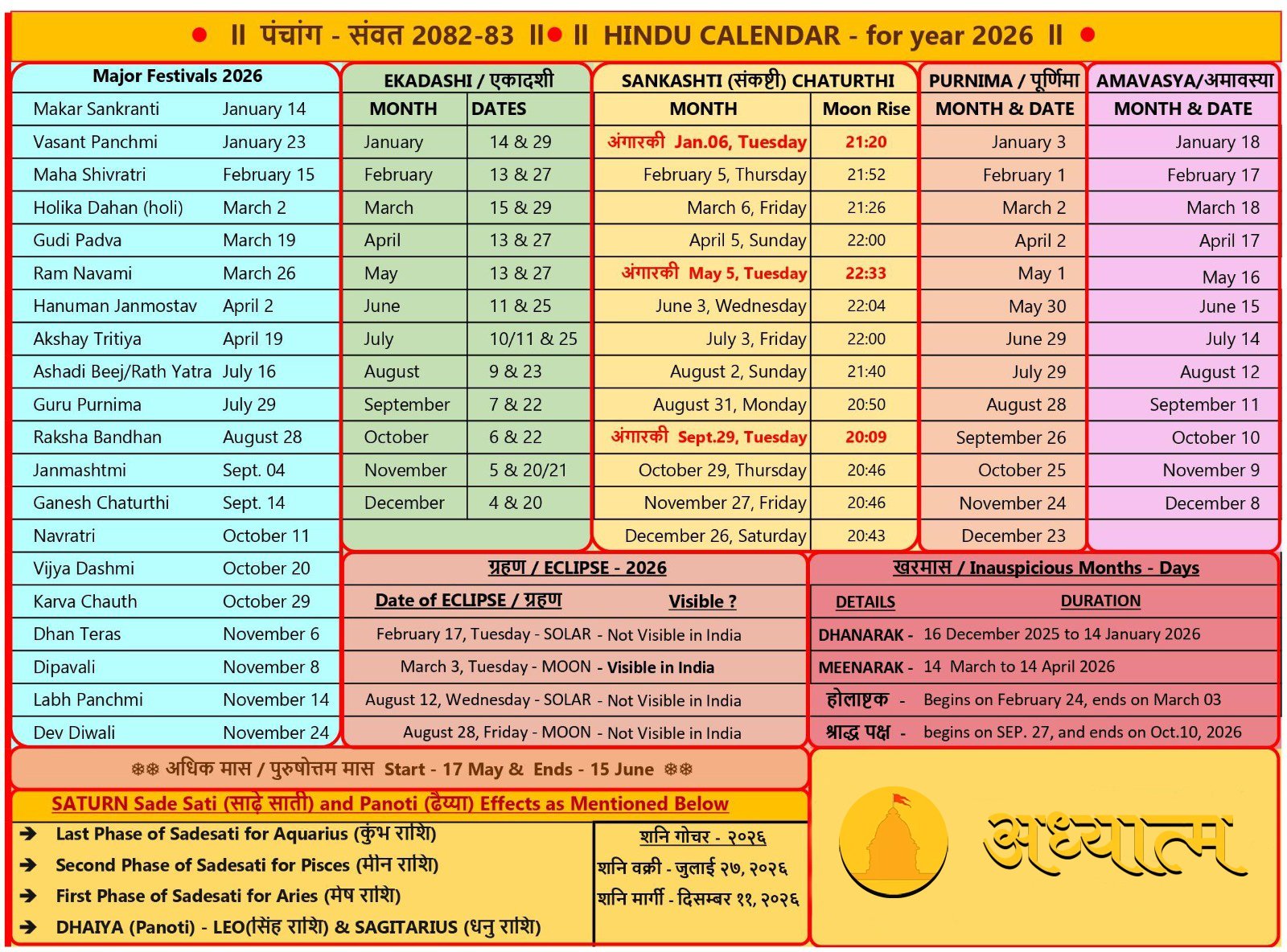Thirunavaya Navamukunda Temple
Tirunavaya Temple (in full Tirunavaya Navamukunda Temple) is an ancient Hindu temple at Tirunavaya, central Kerala, India, on the northern bank of the Bharatappuzha (River Ponnani), dedicated to Navamukundan (Narayana-Vishnu).
The temple is glorified in Divya Prabandha, an early medieval Tamil collection of hymns by the Vaishnava Alvars. It is one of the 108 Divya Desams dedicated to god Vishnu, who is worshipped as Navamukunda Perumal at Tirunavaya. The temple has no pond or well, and water from the river is used for all rituals. The presence of Cherutirunavaya Brahma – Siva Temples across the River Ponnani at Tavanur makes it a Trimurti sangama. The river bank in the temple are considered as holy as Kasi and the ritual offering practices for forefathers (bali tarpana/sradha puja) are similar to the ones done there.Ganapati (Adi Ganesa/Gajendra), Lakshmi (“Malarmangai Nachiyar”) and Ayyappa Swami are the associated pratishthas. Goddess Lakshmi has a separate sri kovil in the temple, unlike most of the other Narayana-Lakshmi temples.
The temple was the venue of the Mamankams, a festival celebrated once in 12 years from at least the 8th century AD.The temple building was attacked and destroyed during the invasion of Kerala by Sultan of Mysore Tipu (18th century AD), and later attacked in 1921 during the Mappila Rebellion.The present temple building is constructed in the indigenous Kerala Temple Architecture style.
Presently, the Tirunavaya temple (Malappuram Division, Grade: Sp) is administered by Samutiri of Kozhikode (Zamorin of Calicut) as the managing trustee under Malabar Devaswom Board, Government of Kerala. The temple is open from 05.00 am to 10.00 am and 04.00 pm to 07.00 pm on all days leaving festive days.
Legends
The Vishnu is called “Navamukunda Perumal/Tevar” as it is believed that the idol was the ninth one to be installed in the temple by a group of nine Hindu yogis known as “Navayogis”. The first eight idols sank into the Earth as soon as they were placed there and the ninth sank to its knees before it was forcibly stopped. As the location of the sunken idols were not known, devotees used to make pradikshina on their knees. Even Alvancheri Tamparakkal and Tirunavaya Vaddhyans were not exempted from this practice.Tirunavaya is also known as called “Navayogisthala”.
According to the legends, goddess Lakshmi and Gajendra, the king of the elephants, worshiped god Vishnu here with lotus flowers from a lake nearby; with the two devotees using flowers from the same source, its supply dwindled, and Gajendra appealed to Vishnu, who took Lakshmi by his side on the same throne and accepted worship offered by Gajendra.











